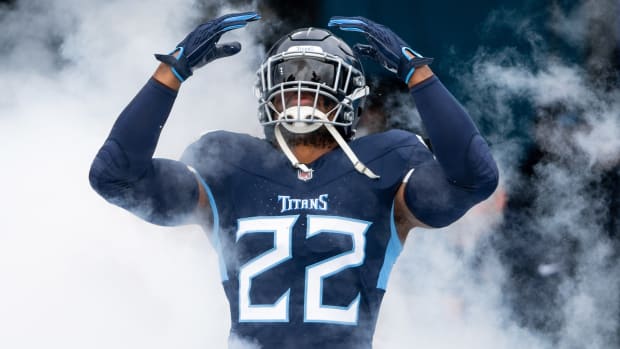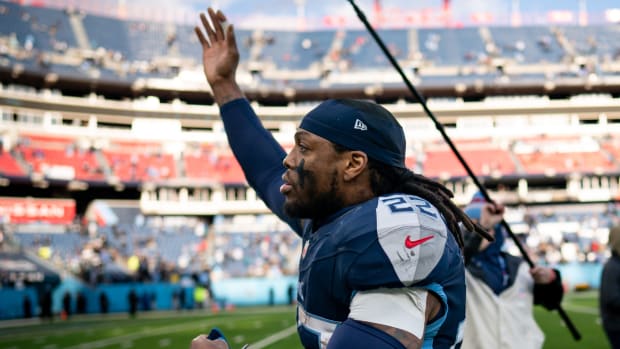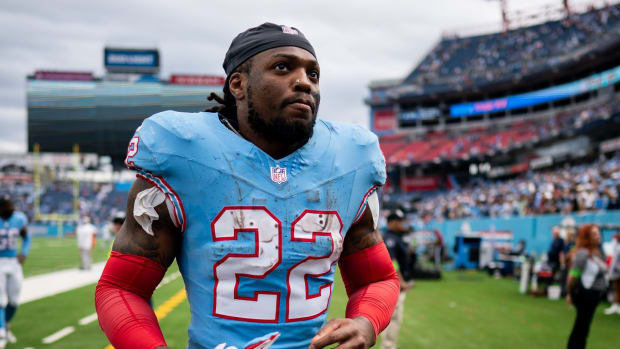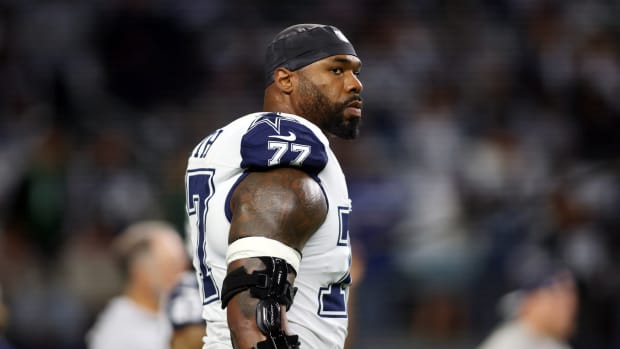Only One Choice at Quarterback
NASHVILLE – In his Friday news conference, Tennessee Titans coach Mike Vrabel was asked about the decision he faced in naming a starting a quarterback for the team’s season finale in Jacksonville.
In reality, there should be nothing difficult about it. Josh Dobbs has to be the man.
The much tougher call was actually made earlier this week, when Vrabel and the Titans chose to give Dobbs his first NFL start – only a few days after signing him from the Detroit Lions’ practice squad – over rookie quarterback Malik Willis, who’d been with the team since last April and already started three games.
Granted, Willis hadn’t set a particularly high bar in his three starts, completing 25 of 49 passes for 224 yards, zero touchdowns and three interceptions, good for a quarterback rating of 39.0.
Still, even in a meaningless game like Thursday’s, going with Dobbs over Willis was a gutsy call.
If Dobbs had been awful, Vrabel and his staff would have been justifiably crucified for sitting Willis – and depriving him of valuable game experience – with the make-or-break finale just a week away.
Instead, Dobbs more than justified the decision to give him a look.
His stats weren’t spectacular – 20-39 for 232 yards, one touchdown and one interception, a quarterback rating of 67.5. Dobbs led the Titans to just 13 points, not enough to keep pace with an explosive Dallas Cowboys team.
But tangibly and intangibly, Dobbs showed more in one start than Willis delivered in three.
Some examples:
• Dobbs found success getting the ball downfield, an element that had been missing from the Titans’ offense under Willis.
Against the Cowboys, Dobbs hit on four passes (11 attempts) that were thrown 10-plus yards downfield. He amassed 101 yards and one interception on those tosses, per Pro Football Focus. He was two-five on passes thrown 20-plus yards downfield, totaling 60 yards.
In comparison, Willis connected on three of 14 passes thrown 10 or more yards downfield in his three starts, totaling 49 yards and an interception. He didn’t complete any passes that covered 20-plus yards in the air. On those, he was 0-4 with an interception.
“It was huge to be able to move the ball down the field and have Racey [McMath] come down with it,” Vrabel said, referencing the Titans' longest gain of the contest. “We are going to need to see some other guys that can go and make some plays. … We will continue to try to throw the ball down the field. We have to connect.”
• On average, Dobbs got rid of the ball after 3.03 seconds against the Cowboys. That’s not lightning fast, but it’s not bad considering his limited time in the scheme. It may also be one of the reasons Dobbs was sacked just twice, despite playing behind a makeshift, banged-up offensive line.
Willis, meanwhile, held on to the ball for an average of 3.58 seconds during his three starts, the highest figure among the 50 NFL quarterbacks who played in Weeks, 8, 9 and 16. There was likely some correlation between Willis’ hesitancy in the pocket and the fact he was sacked 10 times in three starts.
• It’s hard to quantify, but there seemed to be an air that the Titans were a more confident, dangerous team on offense under Dobbs than Willis – even without Derrick Henry in the lineup, and even with another starting offensive lineman (right tackle Nicholas Petit-Frere) sidelined for the full game.
Sure, the Titans under Dobbs mustered only 13 points, a total that Willis eclipsed in each of his three starts (thanks in large part to Henry). But it’s worth nothing that another promising drive under Dobbs didn’t wind up producing points. In the second quarter, for instance, Dobbs led a nine-play, 44-yard possession to the Cowboys’ 24-yard line before he fumbled when he was sacked.
And Dobbs’ 232 passing yards were still more than Willis totaled in each of his three starts (55, 80 and 99 yards, respectively).
“He brought a confidence,” center Corey Levin said of Dobbs. “You don't want to be (too) calm in a football game, but he brought a calming presence. Like we were never out of it. There was just a focus … There's obviously always stuff to work on, but as far as Josh, I mean, he gave us a great chance to win.”
Which is exactly why Dobbs – and not Willis – should start against Jacksonville next weekend.
The bigger-picture question is just what Dobbs’ quick leap over Willis on the depth chart means in the long term.
Though Willis was never expected to be a starter in his rookie season, the fact that he wasn’t considered the best candidate to start against Dallas – despite all he’d learned since last April, despite the fact he’d started three games, and despite the fact Dobbs was brand new to the organization – has to be a red flag concerning his development.
"Ryan [Tannehill] is unavailable at that point in time and now going forward, what is the vision that you have for the position, how you think you can have somebody come in here to learn and work with?" Vrabel said. "We went through a bunch of names. We went through a bunch of conversations.
"(Dobbs) is who we ended up with and we are excited that he is here. I thought he took advantage of his opportunity. We will see where that leads."
Where the Titans are at the quarterback position right now is clear: It would be madness to return to Willis against Jacksonville, based on the samples that he and Dobbs have provided.
The toughest decision has already been made. It’s just a matter now of following through on it.






